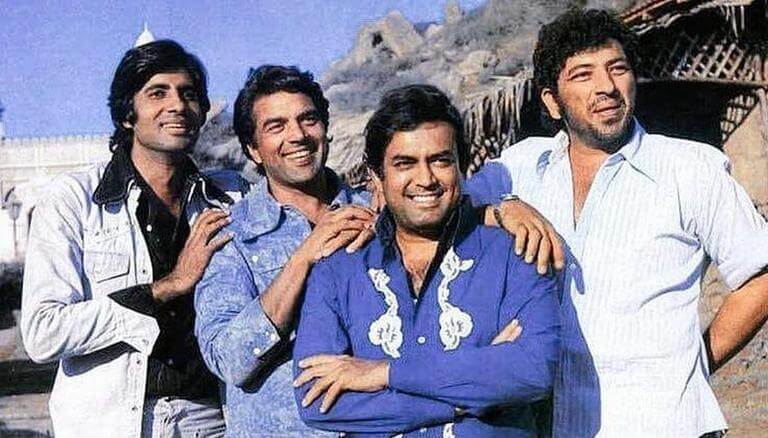Sholay is indeed a 1975 Bollywood action-adventure film directed by Ramesh Sippy as well as produced by his father G. P. Sippy. It was written by Salim–Javed as well as helmed by Ramesh Sippy. Veeru (Dharmendra) and Jai (Amitabh Bachchan) are two criminals recruited by a retired police officer (Sanjeev Kumar) to apprehend the brutal dacoit Gabbar Singh (Amjad Khan). Basanti and Radha, Veeru and Jai’s love interests, are played by Hema Malini and Jaya Bhaduri, respectively. Sholay is regarded as a masterpiece and that one of India’s greatest films. It came in the first place inside the British Film Institute’s vote of the “Top 10 Indian Films of All Time” in 2002. It was chosen the Best Movie of the 50th Filmfare Awards in 2005 by the jury.
Over the course of two and a half years, the movie was shot on the mountainous terrain of Ramanagara inside the southern state of Karnataka. Sholay was released with a running time of 198 minutes after the Central Board of Film Certification ordered the excision of some violent sequences. The 204-minute original director’s cut was released on home video in 1990. Sholay had unfavourable critical reviews as well as a lukewarm financial reception when it was initially released, but positive word-of-mouth exposure helped it become a box office hit. It set records for continuous showings in several theatres across India, and it played in Mumbai’s Minerva theatre for more than five years.
In the Soviet Union, the picture was also a box office hit. This was the highest-grossing Indian movie of all time at the time, and so it remained so till Hum Aapke Hain Koun..! (1994). Sholay is widely considered to be one of the highest-grossing Indian movies of all time, even when adjusted for inflation.
The movie is a Dacoit Western (also known as a “Curry Western”) that combines Indian dacoit flicks with Spaghetti Western traditions as well as aspects of Samurai cinema. Sholay is also a prototypical masala movie, combining various genres into one piece.
The movie’s themes include the glorification of violence, conformity to feudal ethos, the dispute between societal order and mobilised usurpers, homosocial bonding, as well as the movie’s position as a national allegory, according to scholars. The original soundtrack, composed by R. D. Burman, as well as the dialogues (issued separately) achieved new sales records when combined. The phrases and characters from the movie became enormously famous, spawning a slew of cultural memes and becoming part of India’s everyday lexicon. Sholay was re-released in the 3D format in theatres in January 2014.
Sholay features a different conclusion inside the director’s original edit, with Thakur killing Gabbar and some more violent sequences. India’s Censor Board removed Gabbar’s death scene, as well as the scene wherein the imam’s son is slain, as well as the moment in which Thakur’s family is massacred. The Censor Board was concerned about the violence and the possibility that viewers may be tempted to break the law by seeing people being harshly punished. Despite Sippy’s best efforts, the movie’s finale had to be re-shot, with the police arriving just as Thakur was about to execute Gabbar, as mandated by the Censor Board.
For fifteen years, spectators could only watch the restricted theatrical version. In 1990, the movie’s original, unedited version was released on VHS in the United Kingdom. Eros International has since published two DVD versions of the film. The director’s cut of the movie is 204 minutes long and retains the original full-frame; the censored widescreen version is 198 minutes long.
The soundtrack of this movie
The movie’s soundtrack was created by R. D. Burman, while the lyrics were written by Anand Bakshi. Below is a list of the songs that were utilised in the movie and were published on the original soundtrack. Following that is a collection of unreleased tracks and conversations that were eventually re-released on a new soundtrack.
Also Read: Trance: All you must know about this psychological thriller movie

